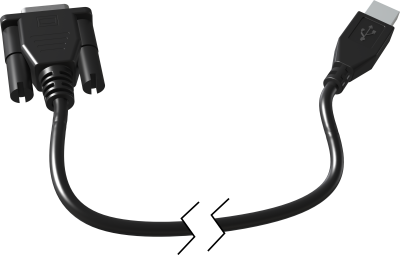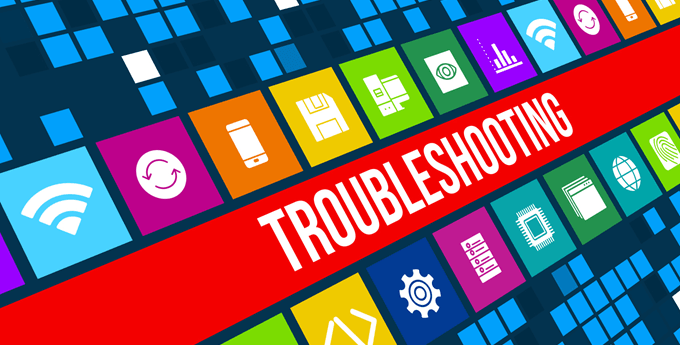To troubleshot is solving a problem or determining a problem to an issue. Troubleshooting often involves the process of elimination, where a technician follows a set of steps to determine the problem or resolve the problem.
Computer troubleshooting overview
Below is a brief overview of the basics of troubleshooting a computer problem. Anyone can follow these steps to help identify or solve most computer problems.
Is the computer turning on?
If the computer or display is not turning on, you can quickly determine that the computer has a connection or other hardware issue. Follow either of the links below for steps in troubleshooting these problems.
Any error messages?
If you're getting any error messages, write down the error and search for that error message. Computer Hope and millions of other Internet sites have documents relating to error messages that have steps on how to fix them.
Reboot the computer
If the computer is acting strange, frozen, or encountering errors and can boot, reboot the computer. Often rebooting the computer can solve many computer issues. We highly recommend not doing any of steps below until the computer is rebooted.
Has any new hardware or software been added?
If any new hardware devices were connected to the computer or any new software was installed, it may be causing your problem. Try removing the hardware, or uninstalling the program, then rebooting your computer. If the problem goes away, that's a strong sign that the new hardware/software was causing the problem.
Has the computer moved ?
If your desktop computer was moved recently, something might have come loose inside the computer. A cable might be loose, or modular hardware such as your RAM or GPU may need to be reseted.
You can open your computer case to inspect your hardware for any loose connections. Before touching the hardware inside your computer, always make sure the computer is properly powered off, and that you are physically grounded. Grounding yourself ensures that electrostatic discharge does not travel from your fingers to your hardware and damage the circuitry.
Have there been any power outages or electric storms ?
A computer that is not running on a UPS (uninterruptible power supply) may improperly turn off during a power outage or brownout. When a computer is improperly shut down, data corruption, and in some cases, hardware failure can occur.
If the computer is not connected to a surge protector, a power surge may have caused damage to hardware in the computer. This type of damage is especially likely if your local area has recently experienced electrical storms or power outages.
Reconnect and check power cords

If the computer is not getting enough power or the power is getting interrupted, the computer can encounter problems. Disconnect your power cables from any power strip or UPS connect the computer directly to a Known good wall outlet.
Is it a hardware or software issue ?
When troubleshooting, it's important to identify if the problem you're encountering is being caused by hardware or software. By identifying what's causing the issue, you'll have a better understanding of the direction of steps to follow.
Update drivers or install latest patches

Hardware manufactures frequently release updated device drivers and firmware to keep their hardware compatible with changes in technology. If you're encountering a hardware issue, make sure that the latest drivers for that device are installed.
Similarly, your operating systems and the software installed on your computer may also have an available patch that might resolve any problems you are having. Make sure your OS and software are up-to-date.
Scan for malware and viruses
Computer viruses and malware can cause a variety of problems, from systems slowness to inability to start the operating system.
When was the computer last running with no problems ?
If the computer has worked in the past and you're running Microsoft Windows, consider running a windows system restore the computer to an earlier date. The system restore does not erase any data and gets settings back to how they were on an earlier date.
Other computer hardware and software troubleshooting

Below are more specific troubleshooting steps related to specific computer hardware and software.
What to do if troubleshooting doesn't help ?
The goal of troubleshooting is to try to isolate the problem by eliminating the possible problems one at a time. If you've gone through all the above steps and you're still not sure what the problem is, get the issue evaluated by an expert.
Writer: Mr. Krishan Kumar Saini
Today we have learnt Basics about Troubleshooting. Hope this lesson is helpful for you.



No comments:
Post a Comment